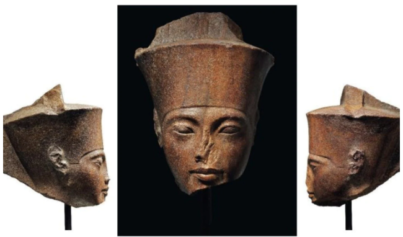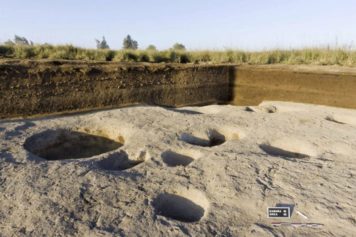Egypt remains in a state of turmoil as thousands of Muslim Brotherhood supporters thronged the streets of Cairo today, showing their “rage” after security forces killed almost 640 people Wednesday.
Police officers were authorized to use lethal force if necessary to regain momentum in the epic clash that has raged since President Mohammed Morsi was deposed.
After the noon prayer, there was chaos and gunfire in Cairo, according to USA Today. Two motorbikes could be seen speeding through the streets, carrying two wounded people shot in a crowd of protesters.
Protesters said the shooting was coming from nearby buildings, but their statements were vague.
“We don’t have weapons. We don’t have Kalashnikovs,” Jamal Salam told USA Today. “And they are shooting us.”
Much of the country was under a state of emergency declared by authorities, who were concerned that the violence would renew today after Friday prayer, which has been a pattern over the last several years since 2011’s Arab Spring.
Thousands of Morsi’s supporters filled the streets and headed toward Ramses Square downtown, leading to the possibility of more violence. The battle between the nation’s secular and Islamist forces are at the heart of conflict, as many Egyptians have balked at the growing and heavy-handed influence of the religious leaders.
“After the blows and arrests and killings that we are facing, emotions are too high to be guided by anyone,” Brotherhood spokesman Gehad el-Haddad told Reuters.
While worried outsiders are fearful that the instability could spread throughout the region, it’s not clear what anybody can do to squelch it outside of Egypt. French President François Hollande has reportedly consulted Britain and Germany about the crisis, but there’s no indication that action will be taken. Yesterday several European officials called for a suspension of aid by the European Union, and Denmark took steps to cut off support.
Turkey’s prime minister, Recep Tayyip Erdogan, an ally of Morsi, requested a meeting of the United Nations Security Council to discuss what he called a “massacre.”
The Brotherhood issued a statement saying the actions of the military-backed interim government against Morsi’s supporters had “increased our determination to end them.”
The killings have left many Islamist leaders in shock after security forces attacked two protest camps where Morsi’s supporters had been staging sit-ins since he was deposed six weeks ago. The country’s health officials counted 638 dead and nearly 4,000 injured, but the final toll was expected to rise.
It was the worst mass killing in Egypt’s modern history.
“The solution might be an assassination list,” said Ahmed, 27, who joined others talking about civil war. “Shoot anyone in uniform. It doesn’t matter if the good is taken with the bad, because that is what happened to us last night.”
But he was interrupted by Mohamed Rasmy, a 30-year-old engineer.
“That is not the solution,” he said, insisting that Islamist leaders would re-emerge with a plan “to come together in protest.”
He said the bloodshed was now turning the rest of the public against the military-appointed government.
“It is already happening,” he said.
Now that the military-backed government has made clear its determination to demonize and repress the Islamists with a ruthlessness exceeding even that of Gamal Abdel Nasser, the autocrat who first outlawed the Muslim Brotherhood six decades ago, it’s not clear what will happen in Egypt.
President Obama interrupted his weeklong vacation to address the carnage. While he didn’t suspend the $1.3 billion in annual American military aid to Egypt, he did cancel joint military exercises scheduled to take place in a few months.
Instead of “reconciliation” after the military takeover, he said, “we’ve seen a more dangerous path taken through arbitrary arrests, a broad crackdown on Mr. Morsi’s associations and supporters, and now tragically the violence that’s taken the lives of hundreds of people and wounded thousands more.”
“Our traditional cooperation cannot continue as usual when civilians are being killed in the streets and rights are being rolled back,” the president said.
Soon after the president’s speech, the State Department issued an advisory warning American citizens living in Egypt to leave “because of the continuing political and social unrest.”
But Egypt’s military-appointed government accused Obama of failing to grasp the nature of the “terrorist acts” it said the nation was facing.
In a statement, interim president Adli Mansour said Obama’s remarks “would strengthen the violent armed groups and encourage them in their methods inimical to stability and the democratic transition.”


